Leo’s War on Consecrated Life Continues: Same-Sex Blessers and Amazon Rite Advocates Now Oversee Traditional Orders
A new Vatican junta takes shape. One that venerates Pachamama more than St. Benedict.
What better way to safeguard the future of consecrated life than by handing it over to men who bless same-sex couples, advocate pagan syncretism, and treat the priesthood like a job-share? That, apparently, is Leo XIV’s vision, judging by his June 24 appointments to the Dicastery for Institutes of Consecrated Life and Societies of Apostolic Life (DICLSAL): the Vatican body tasked with overseeing religious orders, including those attached to the Latin Mass.
The lineup is nothing short of a theological provocation. Among the newly appointed members are Cardinal Arthur Roche, the liturgical arsonist of the Francis era; Cardinal Cristóbal López Romero, a full-throated defender of Fiducia Supplicans and its same-sex “pastoral blessings”; and Cardinal Jaime Spengler, the Brazilian prelate actively pushing for an Amazonian rite steeped in indigenous paganism and “open” to married clergy.
All three will now have a voice in the very dicastery responsible for regulating the FSSP, the Institute of Christ the King, and other traditional religious institutes. In other words: the foxes are now running the henhouse.
The Return of Cardinal Roche: Liturgical Hostility Elevated
Roche’s place in this cabal is no surprise. As the enforcer of Traditionis Custodes, he spent the better part of the last decade snuffing out the Latin Mass wherever it dared to bloom. His disgust for traditional piety is well documented; so much so that a senior member of his office once reportedly expressed dismay at the success of the Chartres pilgrimage purely because it featured the Tridentine liturgy.
Now installed at DICLSAL, Roche will have a hand in scrutinizing the constitutions, leadership, and very existence of traditional communities. The man who once called the old Mass a “threat to unity” is now positioned to determine whether the monks, nuns, and priests who love it will even be allowed to exist.
Cristóbal Romero: Fiducia’s Favorite Salesman
Cardinal Romero, Archbishop of Rabat, is best known for his ideological loyalty to Fiducia Supplicans, the Vatican’s Trojan horse for same-sex blessings. After most of Africa rightly rejected the document, Romero issued a statement urging Catholics to “avoid any spirit of controversy” and accept the declaration as a deepening of “discernment.”
In other words, shut up and bless it.
Romero has insisted that even “irregular couples” asking for blessings deserve the benefit of the doubt. Gone is any fear of scandal. Gone is clarity. What remains is a muddle of emotional affirmations posing as mercy; all designed to baptize moral disorder.
This is the man who will now help decide the fate of religious congregations bound to traditional vows, traditional morals, and traditional theology.
Spengler’s Jungle Rite and the March of the Viri Probati
Cardinal Spengler, president of the Latin American Bishops’ Conference, has long danced on the edge of doctrinal disaster. His flirtation with an Amazon rite, including pagan symbolism and indigenous rituals, has been well documented. He praises the “dignity” of tribal inculturation and hints at approving the ordination of married men as a pastoral necessity.
When asked about blessing homosexual couples, Spengler offered the kind of sentimental drivel that passes for pastoral wisdom today: “Are they people? If they are people, they deserve our respect.” It’s the theological equivalent of “Love is love.” And now, this same man will help determine whether a traditional Carmelite monastery in the Alps is sufficiently “synodal.”
Inculturation or Infiltration?
With Spengler now a voting member of the dicastery overseeing religious life, his long flirtation with a new Amazonian rite takes on new gravity. The process of inventing a syncretistic liturgy, complete with tribal dress, clay incense bowls, and ambiguous gestures toward the divine, is already underway. The very bishops Spengler represents have openly admitted that these practices stem from indigenous pagan rituals. They are not merely inculturated Catholicism, but the sacral forms of another religion, now invited into the sanctuary.
In 2019, Rome welcomed Pachamama to St. Peter’s. In 2025, we may see her liturgy receive ecclesial approval.
And who will approve it? The same men now overseeing traditional religious life. The same men who want monks in sandals and rainbow stoles, not cowls and cassocks. In their hands, the question is no longer whether religious life should be conformed to Christ, but whether it can be adapted to every authentically “human need,” a category so elastic it now includes blessing mortal sin and rewriting the Mass to appease local spirits.
The Real Target: The Few Orders Still Faithful
Let us not forget why this dicastery matters. DICLSAL has been the Vatican’s preferred instrument for strangling traditional religious life. Under Francis, it produced Cor Orans, the document that wiped out the autonomy of contemplative convents. It’s the same dicastery that now demands bishops get Vatican approval before founding any new religious institute; effectively blocking new traditional communities from ever forming.
It now boasts a female religious as prefect (Sr. Simona Brambilla) and a laywoman on its governing body. Welcome to the synodal Church, where governance without ordination is a feature, not a bug.
This is no longer the age of St. Bernard or St. Teresa of Ávila. It is the age of Brambilla and Roche.
Conclusion: Not Reform, But Reeducation
The few remnants of faithful religious life, those who cling to the old Mass, the old vows, the old teachings, are being placed under the control of men who have openly rejected them. This is not a matter of governance or oversight, but a hostile takeover.
And as the Latin Mass communities undergo visitations, restructurings, and “pastoral dialogues,” the same prelates who promote syncretism and moral ambiguity will smile from their thrones in Rome, reminding us that “discernment” is the new doctrine and “unity” the new faith.
But faithful Catholics should not be fooled. This is not unity or discernment. This is coercion.
And the war on consecrated life is no longer waged in shadows. It now marches under the banner of synodality: blessing irregular unions, praising Amazonian rituals, and silencing what remains of the sacred.

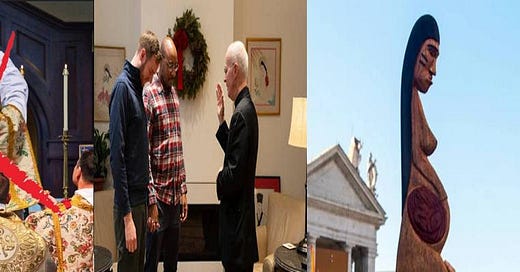



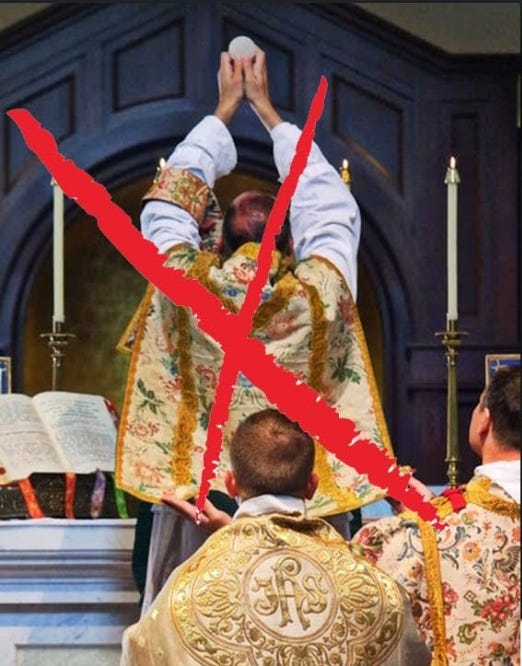
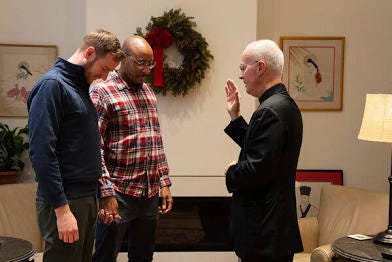
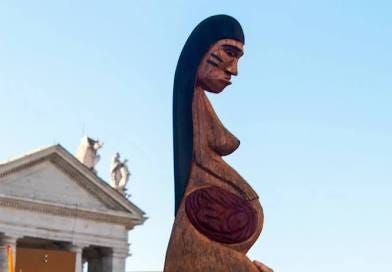
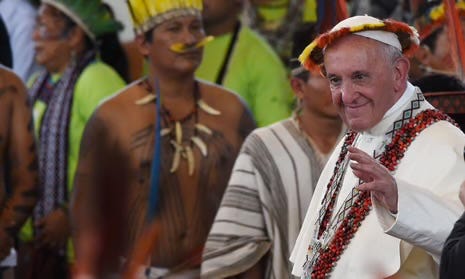
This is horrifying, as most of the religious orders which have managed to rise from the ashes of Vatican II are devoted to the Latin Mass. May our Lord have mercy.
In response to news like this, those in my circles who frequent SSPX chapels have by and large responded by saying that those who celebrate or attend the TLM at diocesan or formerly Ecclesia Dei communities need to come over to the SSPX. I do not think this is the right approach at all. While there remain certain theological disagreements with regard to Vatican II and prudential approaches to handling the situation in the Church, I find that more and more, people from all different kinds of TLM communities hold pretty much the same views. If everyone joined the SSPX, then there would be a single potential point of failure and infiltration. The solution is for diocesan, FSSP, ICKSP et al priests to stand up and refuse to abandon the TLM and solid Catholic teaching, and for the laity to open their doors and welcome these priests if they face retaliation from their superiors. Sitting around talking about how religious liberty is bad and how the TLM was never really abrogated isn't going to help. People need to ACT like it was never abrogated.